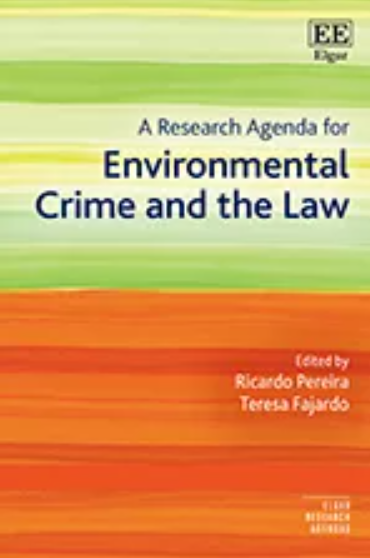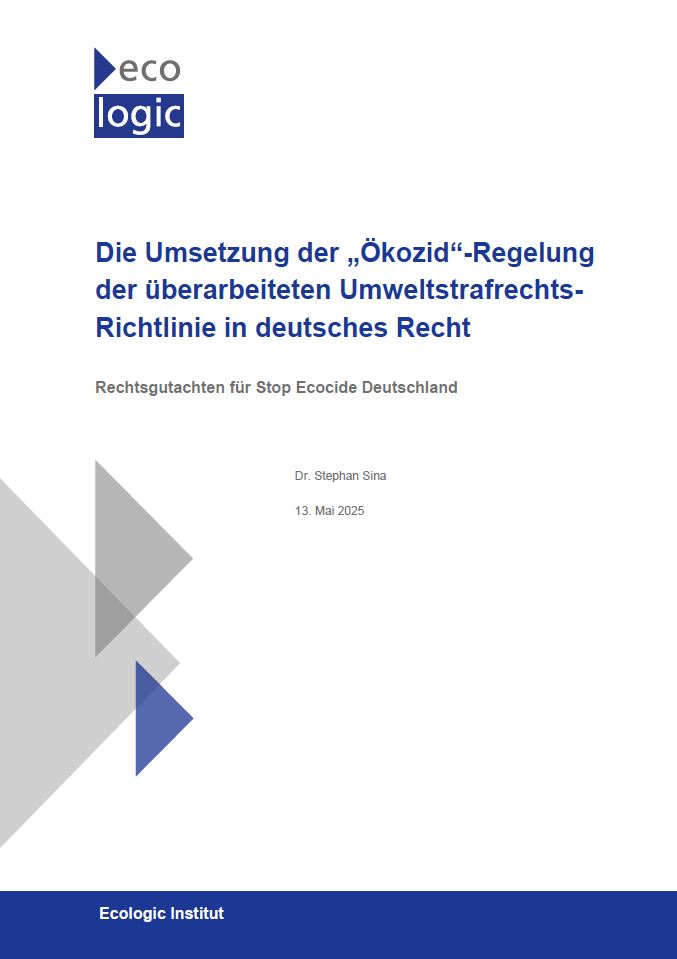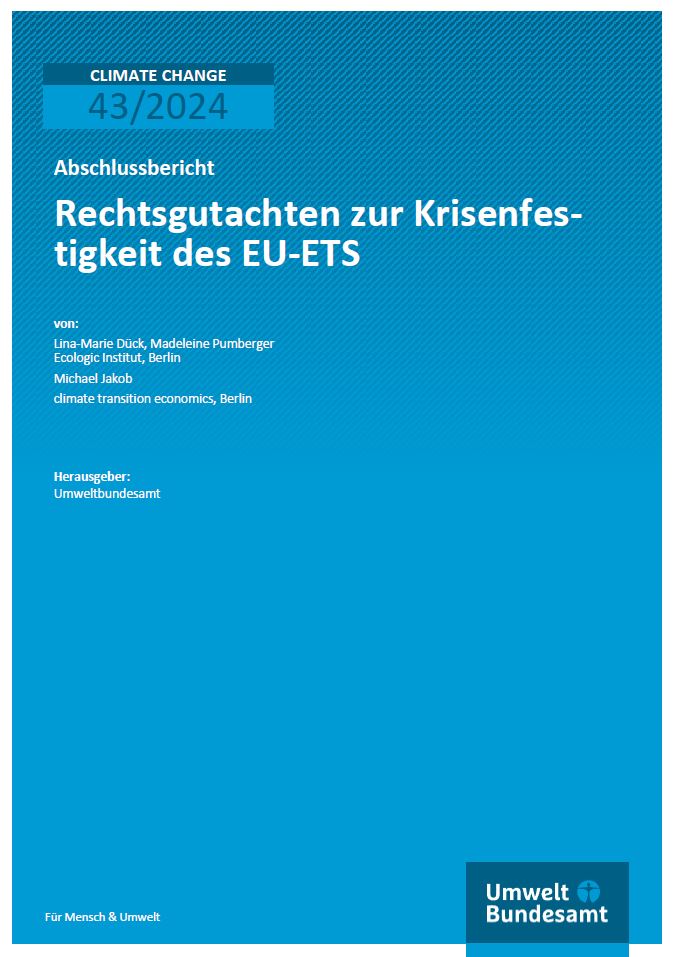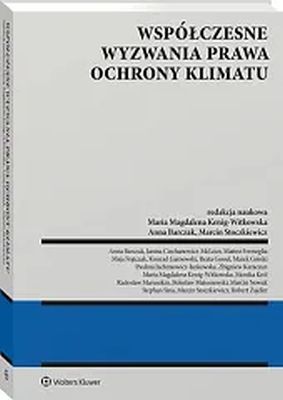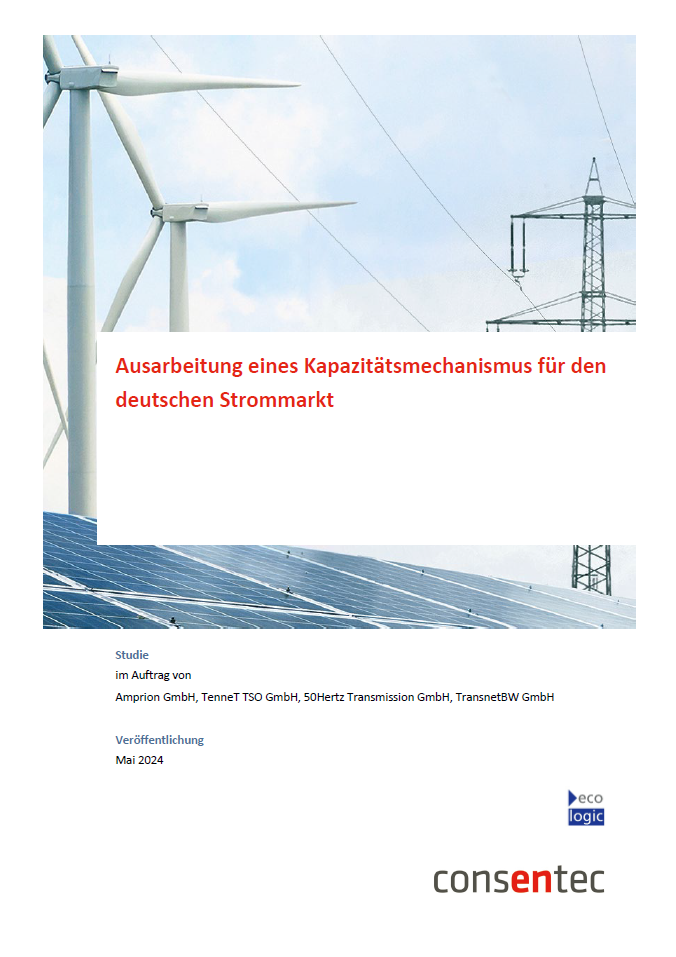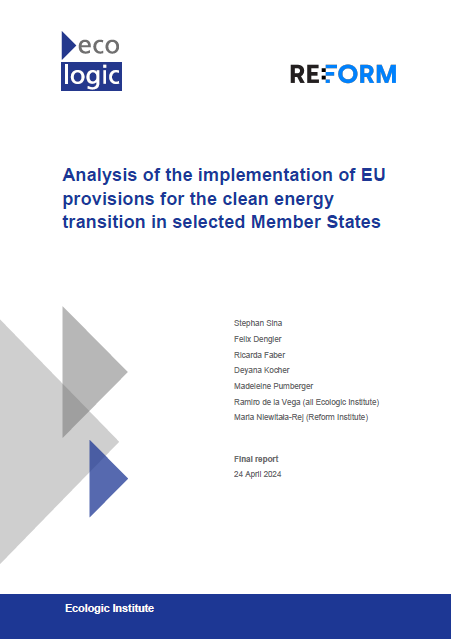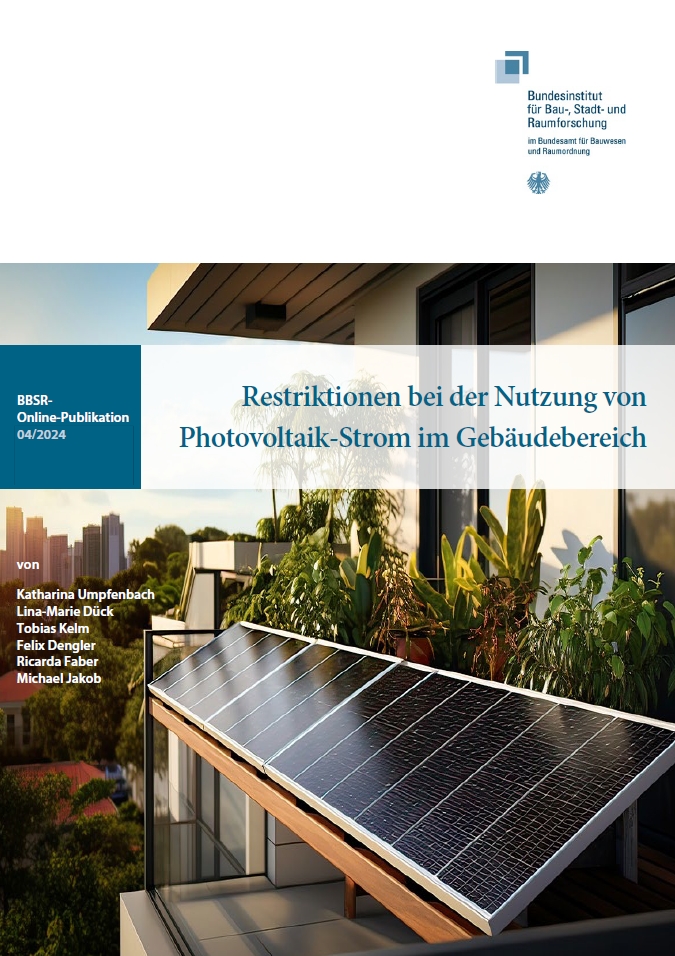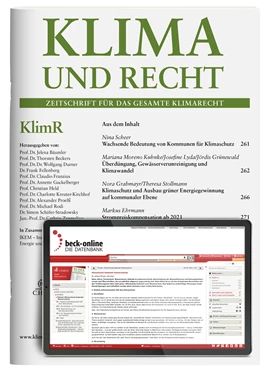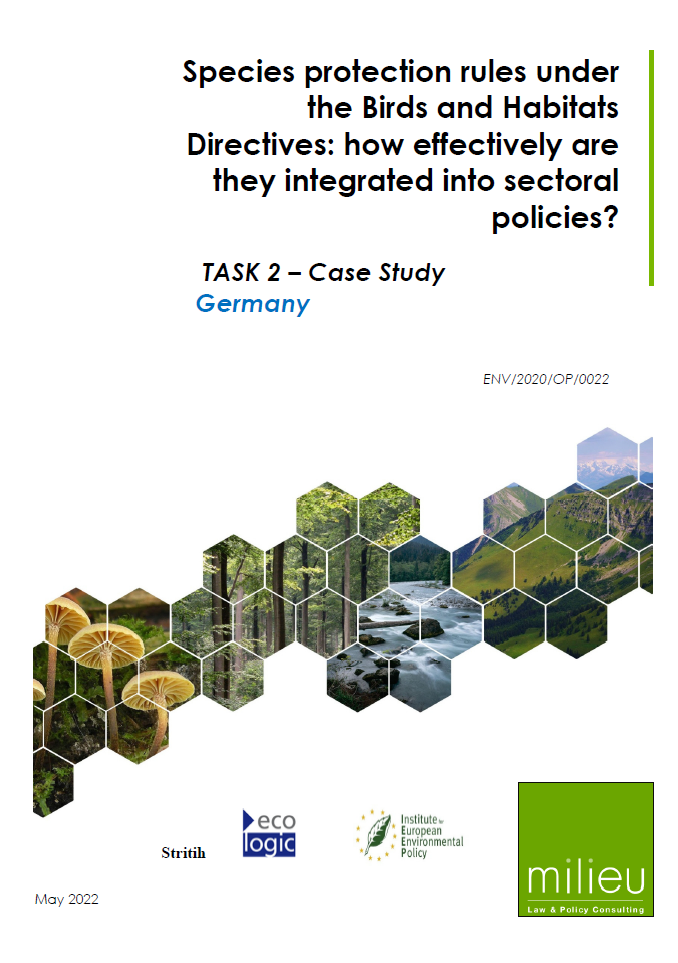Publication:Report
Publication:Book Section
Publication:Case Study
Romania's Draft Penalty Rules for Violations of the EU Methane Regulation
Assessment of the draft law of 11 November
Year
Read morePublication:Case Study
Czechia's Draft Penalty Rules for Violations of the EU Methane Regulation
Assessment of the draft law of 11 November
Year
Read morePublication:Report
Penalty Regimes for Violations of the EU Methane Regulation in Selected EU Member States
Debunking the "unmanageable liability" claim
Year
Read morePublication:Report
Publication:Book Section
Climate Change and Criminal Justice
Chapter in A Research Agenda for Environmental Crime and the Law
Year
Read morePublication:Report
Publication:Document
Publication:Report
Publication:Book Section
Publication:Report
Publication:Report
Publication:Report
Publication:Podcast
Nature Restoration Law: Restoring Europe's ecosystems & protecting biodiversity
Tenth episode of the podcast "Green Deal – Big Deal?"
Year
Read morePublication:Article
Publication:Case Study
